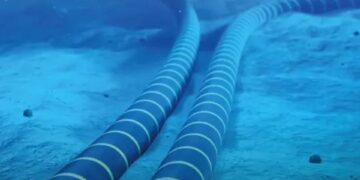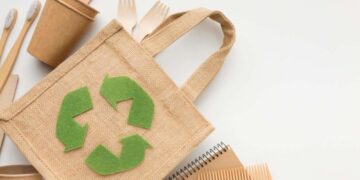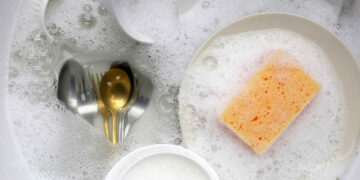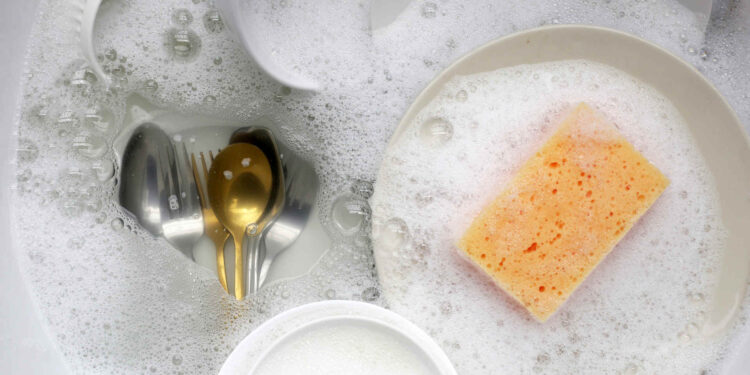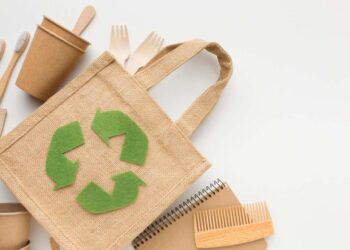Chinese researchers develop surfactant-free detergent based on wood fiber and zein: as effective as synthetic products.
Cleaning products Every home has them, from laundry detergent to dishwashing liquid, from stain removers to special products for wood and other materials. However, we now know that the chemicals that make these products so effective are very difficult to break down and, in some cases, can cause serious harm to the environment: surfactants in particular can alter pH and phosphorus levels in water systems, leading to eutrophication and algal blooms.
Now, Chinese researchers have solved this problem by developing an eco-friendly detergent based on cellulose and zein , the main protein in corn, that can remove stains from dishes and clothes as effectively as commercial products. All without surfactants, of course.
Eco-friendly detergents: science seeks new solutions
Growing consumer concerns about the environmental and health impacts of certain products are driving research into sustainable alternatives : this applies to cosmetics , fabrics and other everyday products such as containers and kitchenware. Concerns primarily revolve around plastic pollution and the hidden dangers contained in chemicals we encounter every day – from hair care products to scented candles , from sportswear to detergents.
The search for eco-friendly alternatives to traditional household cleaning products is urgent in this case: some chemicals contained in detergents actually pose a real threat to various ecosystems, especially freshwater ones. Therefore, scientists are looking for solutions that would allow obtaining detergents that would be as effective as commercial detergents, but would not contain harmful substances such as polyethoxylated alkyl phenols, phosphates and other surfactants.
Efforts so far have yielded mixed results: eco-friendly detergents have proven effective, but they are difficult to produce and rinse off , making them expensive and potentially harmful to fabrics and surfaces. So scientists continue to search for solutions that are effective, eco-friendly, and easily accessible.
The latest promising discovery comes from China, where a team of researchers led by Professor Peng Tao Liu has developed an eco-friendly detergent based on plant-based ingredients found in abundant renewable resources: wood and corn. In a project funded by the China Key Technology R&D Program under the Ministry of Science and Technology, the researchers combined cellulose nanofibers with zein , a key protein in corn, to create a special emulsion that can remove a wide range of stains without the use of surfactants.
Pickering emulsion as a substitute for surfactant: A Chinese study
As the scientists explain in a study published in ACS Langmuir , cellulose is able to attract and repel water, making it effective at forming emulsions and removing a wide range of stains. Corn protein, on the other hand, helps stabilize the emulsion and retains the oil. To avoid the use of surfactants, the researchers used a special type of emulsion called Pickering emulsions , based on the presence of nanoparticles that can form a rigid barrier around the emulsion droplets, thus preventing them from aggregating.
When two immiscible substances, such as oil and water, are mixed, tiny droplets of oil are formed and dispersed throughout the solution. However, over time, the droplets naturally tend to aggregate, which reduces the amount of energy present in the system, so emulsifiers are needed – agents that can keep the droplets separated and thus stabilize the emulsion.
Surfactants are still the most widely used compounds for this purpose. However, the Pickering emulsion, known since the early 20th century, has once again attracted the attention of scientists as a possible alternative to these substances.
The solid particles in Pickering emulsions, according to the study, ” can self-organize to form a rigid barrier at the oil-water interface , effectively preventing droplet aggregation and stabilizing the emulsion. In this case, the stabilizer is a complex of zaina and oxidized cellulose nanofibers that form a kind of shell around the oil droplets by aggregation through electrostatic attraction.”
Cellulose and zein based detergents are as effective as commercial detergents.
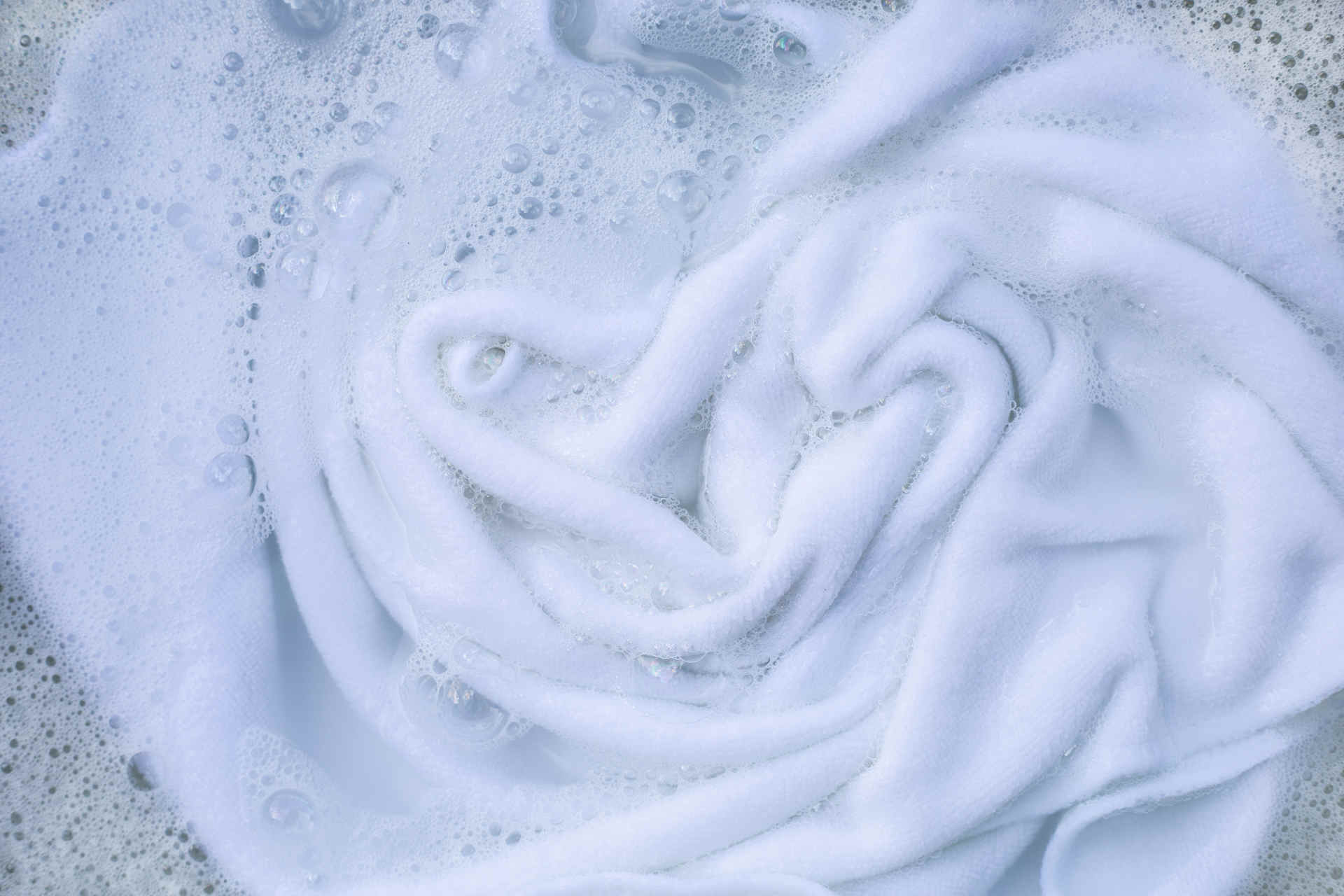
Liu and his colleagues tested the cleaning performance of cellulose- and zein-based detergents on cotton cloth and plates contaminated with ink, chili oil, and tomato paste. The new detergent’s performance was then compared with that of commercially available powdered detergents and dishwashing liquids.
The new eco-friendly detergent was found to be slightly less effective in cleaning cotton fabrics than a uniformly diluted solution of laundry detergent (1% detergent or powder by weight). However, at a concentration of 5%, the cellulose and zein-based detergents were more effective in removing all stains from fabrics than the 1% diluted laundry detergent. Microscopic examination later showed that the detergent left no residue on the cotton after washing and rinsing, indicating that it was safe for the fabric.
The researchers also tested their detergent’s ability to remove chili oil stains from ceramic, stainless steel, glass, and plastic dishes. Again, the cellulose-zein detergent cleaned nearly as well as a commercial dishwashing detergent at the same dilution, and at 5%, the new product was better. For example, on stainless steel plates, the 5% cellulose-zein solution removed 92% of the stains , while the commercial dishwashing detergent removed only 87%.
The researchers say these results suggest that new products based on wood fiber and corn protein could provide an effective, cost-effective and sustainable alternative to synthetic detergents currently on the market.






